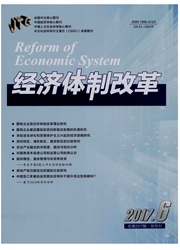

 中文摘要:
中文摘要:
本文旨在探讨农村住房制度的市场化改革方向。建设农村住宅市场有利于提高生产效率、重新分配收入并重新配置经济机会,打破“城乡二元经济”的枷锁,是土地资源市场化配置改革的必然趋势。然而,除法律障碍以外,农民住房流转意愿不高以及农村住房租购欲望不强可能是最大的阻力。应按照“先赋权、再规范、后统一”的总体步骤有序推进;重点考虑城乡住房市场融合程度和农村区位两个因素,划分五类地区,选择差异化的市场路径。
 英文摘要:
英文摘要:
The purpose of this paper is to discuss the market-oriented reform of china's rural housing institutions. The study shows that the establishment of the rural housing market is conducive to improving the efficiency of production, reallocation of income and economic opportunities, breaking the shackles of the urban-rural dual economy, and is an inevitable trend in the reform of land resources market allocation. However, in addition to legal barriers, the biggest drag may be the farmers' willingness to transfer housing is not high and the desire to rent and buy rural housing is not strong. So, the reform should be promoted orderly by the general steps of "empowering firstly, regularizing then, integrating finally". And it should focus on two key factors, the degree of integration of urban and rural housing market and the rural location, dividing into five types of regions, and ehoose the differentiated market path.
 同期刊论文项目
同期刊论文项目
 同项目期刊论文
同项目期刊论文
 期刊信息
期刊信息
